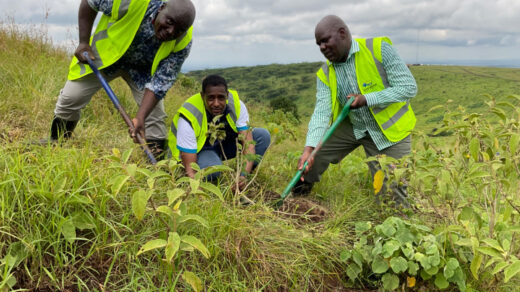Regulations Put in Place to Curb Illegal Loggers
CS for Environment, Climate Change and Forestry Soipan Tuya on Sunday 6, August lifted the lid on the regulations that the Government has put in place to minimise illegal loggers from interfering with the indigenous forests.
Speaking during an interview at Citizen Tv, Tuya affirmed that there are people who are doing illegal activities while in the same breath there are those that are engaging in the activities legally.
“We have a legal process that involves saw millers and Kenyans in the timber industry who are given the permits and consentions to deal with a limited hectare of the forest,” she stated.
Additional Recruitment
Tuya affirmed that control measures have been implemented to enhance the enforcement capacity of Kenya Forest Service. To limit the illegal activities within the forest, the CS stated that they recruited additional 2,700 rangers and are in the process of adding 600 forest officers.
The additional recruitment will ensure that the forest is well taken care of and monitored against any illegal activities.
Green Army
As a way of tagging along young people in the process, a team branded “Green Army” has also been structured to propel the enforcement capacity course.
“We have also begun operations to kick out illegal loggers. We have had to interdict some Kenya Forest Service officers who have been in collusion with illegal loggers and those that are doing charcoal burning in the forest,” she reaffirmed.
An operation to reduce logging was roundly done in Sururu and Baringo forests to enlighten members of the public that lifting of the ban on logging does not give greenlight to engage in illegal logging.
She added that the operations will be progressive so as to save the forests.
Partnership with the French Government
Through the Kenya Forest Service, the Kenyan Government has partnered with the French Government to enhance surveillance within the forest.
The project, the CS stated that drones will be put in place among other surveillance facilities to monitor the activities within the forest. This, she clarified, “ensures that Kenyans understand that we have commercial plantations but indigenous forests are a no go zone.”
Communities that culturally depend on Forests
Even though there are communities like the Ogiek community who by culture are known to live in the forests, they have had to face hard hurdles regarding whether they are rightfully in the forest or they are deteriorating the state of the green environment.
Tuya affirmed that this has opened a window for crafty individuals who claim to belong to such communities but end up leasing part of forest land and end up engaging in activities that endanger the forest.
“We are engaging with the Ogiek community because they have this case that was adjudicated upon in the African court of Human and People’s Right that allows them access in the forest but has a limit,”
The access granted to the Ogiek community allows them to get in the forest and do sustainable activities such as bee keeping. This, however, doesn’t allow them to build structures within the forest.
The ban on logging was introduced in 2018 after public outcry over shrinking water resources blamed on the destruction of water towers.
The lifting of the six-year ban on logging by President William Ruto in June, 2023 was met with controversies from environmentalists who seemed directly against the decision.
The Law Society of Kenya eventually moved to court to challenge the directive arguing that there was no public participation before the ban was lifted.
The Environment and Land Court gave into the uproar and issued orders to temporarily suspend the initial directive that lifted the ban on logging.



